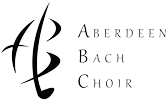The world famous castrato, Farinelli, was similarly tempted to London by a huge fee, although one might argue that, with prepubescent castration leading to abnormally long limbs, and a voice of serene but childish purity, he had already paid a personal price for his fame. (Are we witnessing here a kind of eighteenth-century equivalent of today’s English football Premier League, with international superstars from overseas being sensationally attracted and imported at huge personal gain, but with what must surely become ultimately unsustainable costs?)
Not surprisingly, this recklessness and largesse meant that the Academy began to suffer financial difficulties. This, coupled with the fact that, after a decade of immense popularity, Italian opera was gradually becoming regarded as somewhat passé, meant that the 1727-8 season was the Academy’s last. Generous and wealthy patrons were simply not willing to subsidise such inflated fees for a genre which was losing popularity. There was the inevitable and ugly disharmony and squabbling amongst the directors, claims and counter-claims of financial corruption; in 1728 the Academy folded.
Not to be deterred, Handel persuaded the Academy directors to let him have the King’s Theatre on a five-year lease. He re-launched the Italian opera productions as a subscription series with the tickets priced at 15 guineas per season. The season opened in December 1730 with a production of Lotario, which was not a success. Neither was Partenope in February 1731. Desperate to succeed, Handel fell back on revivals of earlier successful productions such as Guilio Cesare, but the public’s heart was no longer in Italian opera, support was patchy and the popularity and passion of the previous decade seemingly could not be rekindled.
Alongside all of this Handel continued his duties for the royal household. Anthems were written for the safe return of King George I from a trip to Hanover. Anthems were also produced for the Chapel Royal, and, following the death of King George I, four substantial anthems were written for the coronation of King George II in 1727: Let Thy Hand be Strengthened, My Heart is Inditing, The King Shall Rejoice and Zadok the Priest. (Zadok has been performed at the coronation of every British monarch since – traditionally during the anointing of the monarch.) For this occasion, in the Collegiate Church of St Peter at Westminster, the building we know better these days as Westminster Abbey, Handel had the services of a choir of almost 200 and an orchestra of 160 players. This building, under the stewardship of the Hanoverian kings, as well as being the centre of regal worship and the royal church, was also becoming London’s grandest concert hall. There are also reports in British provincial newspapers dating from the late 1720s of performances of Handel’s music outside of London, in particular in the cathedrals and theatres in Bristol, Gloucester, Birmingham and Liverpool. In October 1727, Handel applied for British naturalisation and this was granted within a week by an Act of Parliament. The texts of the coronation anthems were drawn and adapted by Handel from the two greatest literary achievements of the English Protestant Reformation: the Book of Common Prayer (prepared by Thomas Cranmer in 1533 and enacted by the First Act of Uniformity of Edward VI in 1549) and the King James Bible, begun in 1604 and published in 1611. (The selection of texts from these two important sources was quite possibly a conscious and essential nod of acknowledgement to the British establishment, from a German immigrant composer, on behalf of a German immigrant king. The establishment had, after all, deliberately rejected the possibility of an English Catholic monarch in favour of a distantly related, but crucially Protestant, foreign Elector as its new Head of State and Head of the Church.) The coronation anthems were one of the most significant building blocks in finding and establishing a new musical voice for Great Britain. Handel addressed, head on, an issue which had been stifling the sacred music of the English Protestant Reformation, by now almost two centuries old, namely the grandiose and revolutionary concept of combining instruments and voices in sacred music in a new and exciting (some thought vulgar) way. Handel simply brought on the trumpets and the drums, and consequently everything was notched up a few gears and the public loved it. (This was an issue which the rebellious Venetians, kicking against the dry polyphony of Rome and the Sistine Chapel, had addressed over a century earlier in St Mark’s Basilica, with the rich and extravagant polychoral music of Giovanni Gabrielli and Claudio Monteverdi (1567-1643).)
THE RELUCTANT SHIFT FROM OPERA TO ORATORIO
In 1732 an event took place which was to transform Handel’s life. Bernard Gates, Master of Children’s Music at the Chapel Royal, gave a private performance of Handel’s oratorio Esther at, of all places, the Crown and Anchor tavern, a public house in The Strand. This performance was so popular that two further ones were hastily convened. These are thought to have been the first ever performances of oratorio in Britain. Throughout the rest of 1732-3, Handel staged not opera but oratorio at the King’s Theatre, producing the new works Acis and Galatea and Deborah. These were largely parodies of earlier Italian operas with new and sacred words, in English, and produced not with scenery, movement, costumes and staging, but as concert performances.
Aberdeen Bach Choir
Scottish Registered Charity Number SC008609


























